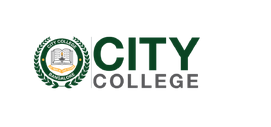In today’s infrastructure boom, qualified technical draftspersons carry tremendous weight in shaping the world around us. To build anything from homes to skyscrapers, skilled AutoCAD specialists who can fluidly translate concepts into precise digital drawings and data-models are invaluable. But not all design software capabilities are created equal when aiming for those coveted top-tier design roles. According to the good folk over at ProTrain, maximizing your career potential relies on choosing the gold standard in specialized AutoCAD certification courses to master niche, in-demand capabilities that set experts apart.
Laying the AutoCAD Foundation
Before targeting advanced AutoCAD credentials, new drafting professionals first focus on fundamental software training, ensuring well-rounded operational abilities. Whether through quick online introductions or more intensive classroom workshops, foundational courses equip students with baseline AutoCAD expertise, like:
- Key interface navigation techniques
- Fundamental drafting tools mastery
- Standard geometry construction and editing
- Rudimentary customization and programming
Consider supplementing beginner software tutorials with manual technical sketching workshops to improve spatial reasoning abilities behind digital drawings. Solid grounds in AutoCAD user interface basics pave the way for integrating advanced functions down the track.
Comparing Advanced AutoCAD Certification Programs
Once confident in core AutoCAD functionalities, intermediate students seeking substantial career progression look towards advanced certification programs that dig deeper into high-level professional applications. Specialized credentials confirm subject matter mastery, valued by discerning employers. They also expand technical boundaries, enabling draftspersons to tackle more complex design needs. But programs vary enormously in terms of credibility, content and formats. So what should ambitious designers evaluate?
Practical Teaching Approaches
Straight lecture-style delivery falls flat when grasping sophisticated software intricacies. Look for certifications emphasizing interactive live demonstrations allowing students to directly apply techniques through hands-on projects under instructor guidance. Video accompaniments let users repeatedly review more challenging functions at their own pace later. Mixing multimedia modules with customizable practice reinforces abilities.
Customization Flexibility
Fixed certification curriculums aiming to universally serve all industries often inadequately prepare technicians for specialized organizational contexts. Prioritize tailored courses that first align with the specific drafting niche you want to excel in – whether mechanical, architectural or engineering design. Then seek flexibility in emphasizing certain tools aligned with typical firm workflows. The best certifications allow adapting modules to concentrate time mastering the AutoCAD skill sets an individual role demands rather than mandating rigid assigned content.
Credential Application Scope
Certification worthwhile investing months into acquiring should boast applications spanning many job roles and workplace settings to maximize value. Broad applicability means credentials opening doors across diverse industries. Also consider international credential validity that enable global professional mobility.
Keeping Pace with AutoCAD Advancements
AutoCAD constantly evolves with new features and functionalities reflecting emerging technological capabilities and industry feedback on improving workflows. While the fundamental user interface remains familiar between software updates, under-the-hood enhancements introduce advanced tools such as:
- Artificial intelligence-powered drafting assistants
- Expanded mobile and cloud compatibilities
- Extended reality integration
- Automated project data analytics
Certification programs risk growing outdated if they fail to continually update curriculums that integrate new innovations relevant for professional users. Check providers frequently refresh course materials to match live software editions.
Beyond credentials earned at any fixed point, lifelong AutoCAD learning matters too. Continuing education ensures professionals stay fluent in additional feature releases to maximize performance. Some certification holders enjoy access to online member portals with regular software developments updates.
Conclusion
Not all AutoCAD credentials carry equal merit with employers. Strategically upskilling requires choosing certifications offering more than just software proficiencies. They must provide expertise verified through respected industry backing plus practical, adaptable and multifaceted learning. Seize the immense growth opportunities of infrastructure’s future with credentials taking your mastery further.
















+ There are no comments
Add yours